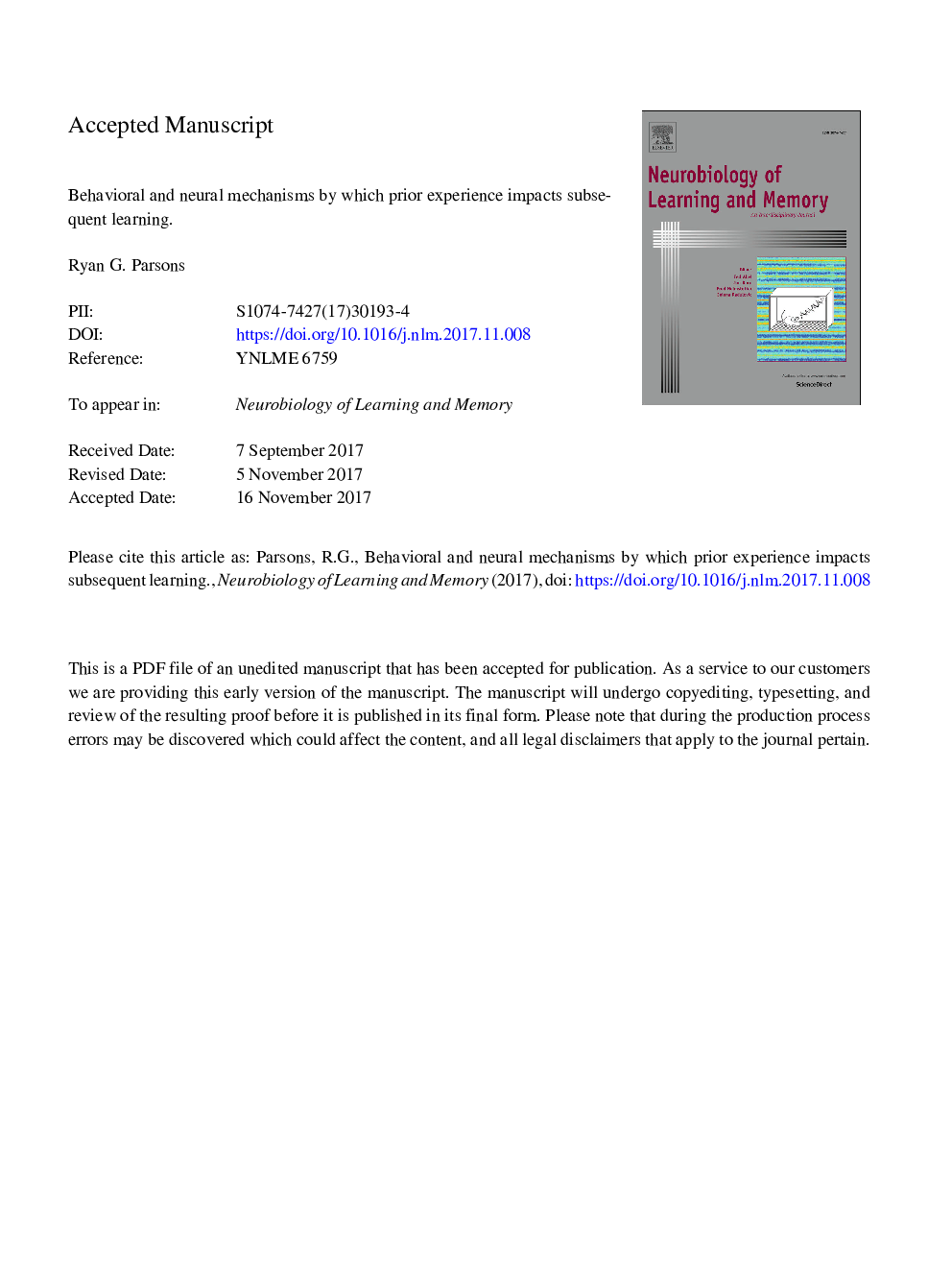| Article ID | Journal | Published Year | Pages | File Type |
|---|---|---|---|---|
| 10153612 | Neurobiology of Learning and Memory | 2018 | 35 Pages |
Abstract
Memory is often thought about in terms of its ability to recollect and store information about the past, but its function likely rests with the fact that it permits adaptation to ongoing and future experience. Thus, the brain circuitry that encodes memory must act as if stored information is likely to be modified by subsequent experience. Considerable progress has been made in identifying the behavioral and neural mechanisms supporting the acquisition and consolidation of memories, but this knowledge comes largely from studies in laboratory animals in which the training experience is presented in isolation from prior experimentally-controlled events. Given that memories are unlikely to be formed upon a clean slate, there is a clear need to understand how learning occurs upon the background of prior experience. This article reviews recent studies from an emerging body of work on metaplasticity, memory allocation, and synaptic tagging and capture, all of which demonstrate that prior experience can have a profound effect on subsequent learning. Special attention will be given to discussion of the neural mechanisms that allow past experience to affect future learning and to the time course by which past learning events can alter subsequent learning. Finally, consideration will be given to the possible significance of a non-synaptic component of the memory trace, which in some cases is likely responsible for the priming of subsequent learning and may be involved in the recovery from amnestic treatments in which the synaptic mechanisms of memory have been impaired.
Related Topics
Life Sciences
Neuroscience
Behavioral Neuroscience
Authors
Ryan G. Parsons,
